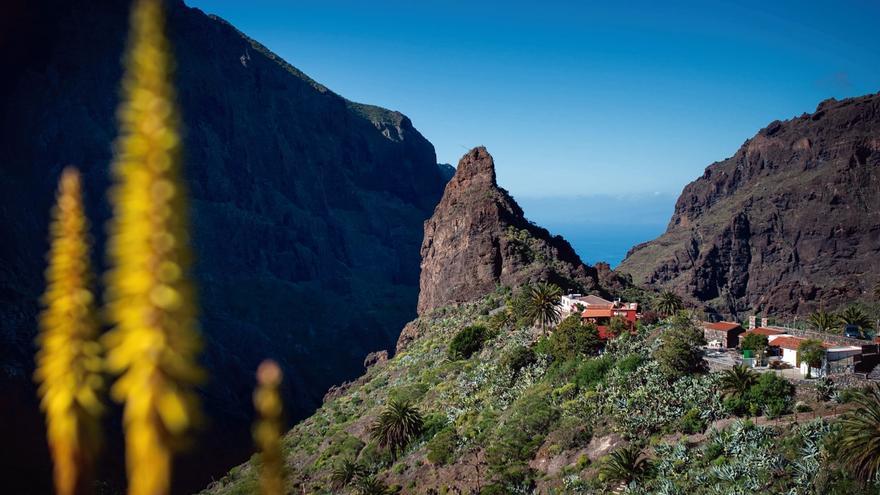Masca eco-tax success story leads to expansion plans
The remarkable success of Tenerife’s Masca eco-tax has prompted authorities to consider implementing similar conservation measures in other pristine natural areas across the island, including Teide, Teno, and Anaga. Since its introduction in July 2024, the charging system has dramatically reduced visitor numbers by 76%, allowing this fragile natural enclave to begin its ecological recovery.
Dramatic reduction in visitor numbers
The impact of the new system has been nothing short of transformative. Annual visitor numbers to the ravine have plummeted from 100,000 to just over 24,000, representing a fundamental shift in how this precious natural area is managed. The Cabildo describes this as “a radical change in the conservation of one of the most valuable and fragile natural enclaves of the island.”
The mechanism operates through mandatory prior reservation, with daily capacity strictly limited to 275 people. This controlled approach ensures that visitors can still experience Masca’s breathtaking beauty while protecting its delicate ecosystem for future generations.
Tiered pricing system supports conservation
The eco-tax employs a thoughtful tiered pricing structure that reflects different visitor categories. Tenerife residents enjoy free access, while other Canary Islanders pay symbolic fees of €3 for adults and €1.50 for children. Non-resident visitors, who represent more than 95% of all visitors, contribute €28 for adults and €14 for children (plus IGIC tax).
This pricing strategy ensures that tourism revenue directly supports conservation efforts while maintaining accessibility for local communities who have traditional connections to the area.
From overcrowded to model conservation site
Cabildo President Rosa Dávila emphasized the transformation, stating that “the drastic reduction in pressure on the trail has been key to protecting an environment that, until recently, suffered from continuous overcrowding and significant ecological deterioration.” She praised Masca as a “unique place, set in a natural area of the highest ecological value, integrated into the Natura 2000 network.”
Dávila noted the remarkable change: “Today we can say that we have gone from a collapsed and dangerous environment to a model and an example of conservation, safety and sustainability.”
Revenue reinvested in conservation and safety
The €652,000 collected from eco-tax visits has been directly reinvested into preserving and improving the ravine experience. Tenerife Councillor for the Natural Environment Blanca Pérez explained that funds support “the conservation of the ravine, the maintenance of the path, the jetty, the Visitor Centre and the bus service.”
Conservation efforts include controlling invasive exotic species, particularly the eradication of reeds – an innovative approach that has been successfully exported to Valle Gran Rey. These initiatives ensure that visitors experience Masca in its most authentic and ecologically healthy state.
Improved safety for adventurous travelers
Previously, the Masca ravine was notorious as one of Tenerife’s “black spots with the most rescues,” requiring up to 20 evacuations annually. The combination of visitor regulation, improved signposting, and the presence of control personnel has significantly reduced emergency interventions, making the experience safer for all travelers seeking to explore this spectacular natural wonder.
Economic benefits for local communities
The eco-tax system has created tangible economic benefits for local residents. Pedro Millán, the island’s director of Natural Environment, reported that “there are 17 direct jobs linked to the management of the trail, the jetty, the visitor centre and the transport service, most of which have been filled by local residents.” This employment boost helps fix population in small rural villages while supporting the local economy.
Future expansion to other natural treasures
The Masca eco-tax represents the fulfillment of commitments made during the 2024 State of the Island Debate, where authorities announced “the implementation of the eco-tax as one of the structural measures to protect the most sensitive natural areas of Tenerife.” This success now lays the foundation for future conservation initiatives extending to other iconic locations including Teide, Teno, and Anaga.
While the proposed Teide National Park eco-tax has generated some controversy and demonstrations, the Masca model demonstrates how thoughtful implementation can achieve conservation goals while maintaining access to Tenerife’s most treasured natural landscapes.


